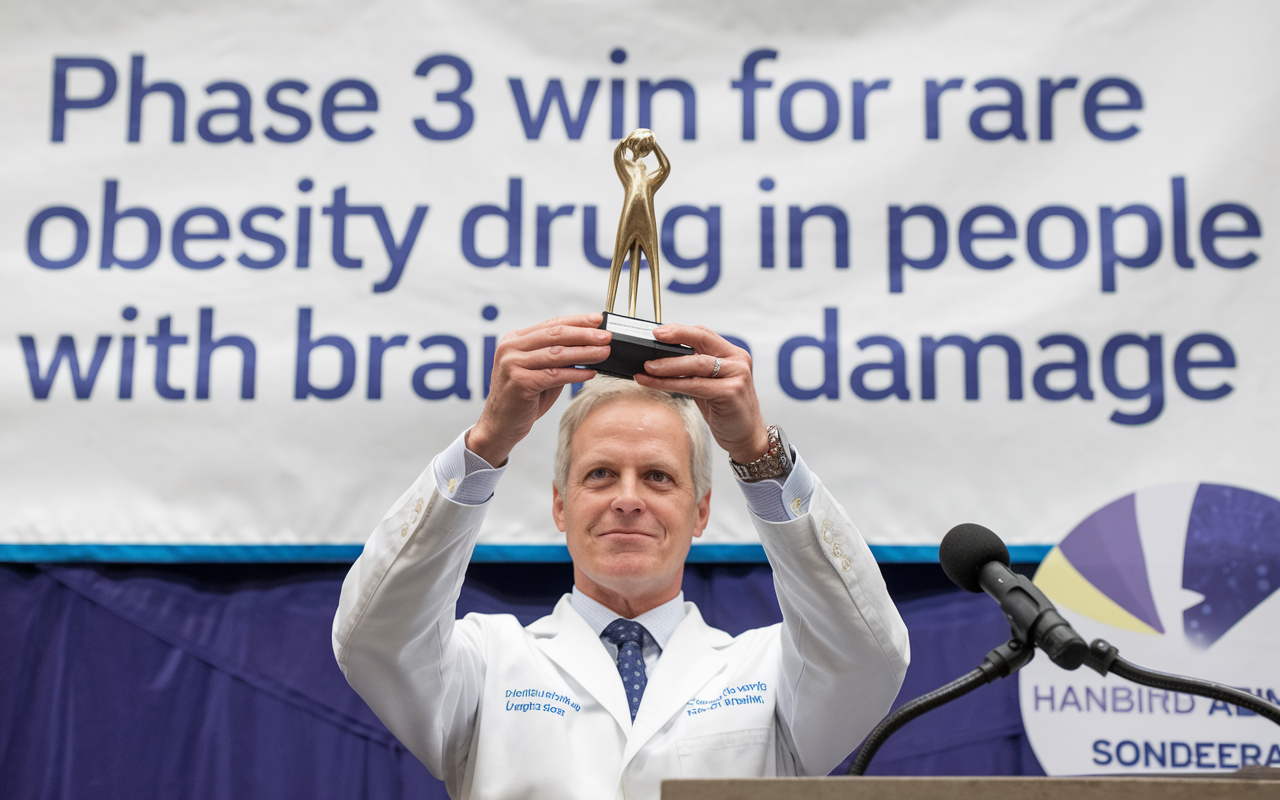Welcome, BioPharmaPulse Readers!
Embarking on another week of biopharmaceutical innovation, let's delve into the breakthroughs shaping our industry. From cutting-edge therapies to strategic partnerships, there's plenty to explore!
What's in this issue:
- 💉 GSK's bold move to breach the blood-brain barrier
- 🧬 Rhythm's Phase 3 triumph in rare obesity treatment
- 🧠 Lexeo's promising gene therapy for cardiac conditions
- 🔬 Epsilogen's expansion in cancer antibody research
Quote of the Day
“The art of medicine consists in amusing the patient while nature cures the disease.” – Voltaire
Latest Developments
💉 GSK pens $2.5B pact for ABL Bio's tech to help antibodies bypass blood-brain barrier (2-minute read)

Rundown: GSK is enhancing its neuroscience portfolio by partnering with South Korea's ABL Bio in a deal worth up to $2.5 billion. This collaboration aims to develop bispecific antibodies capable of crossing the notoriously impermeable blood-brain barrier, potentially revolutionizing treatments for neurological disorders.
Key Points:
- 🧠 GSK gains access to ABL Bio's Grabody-B platform for crossing the blood-brain barrier.
- 🤝 The deal includes an upfront payment and milestone-based incentives.
- 🌐 Focus on neurodegenerative diseases like Alzheimer's and Parkinson's.
- 🔬 Potential to improve drug delivery efficiency to the brain.
Why it matters: Overcoming the blood-brain barrier is a significant hurdle in treating neurological conditions. This partnership could pave the way for more effective therapies, bringing hope to millions affected by debilitating brain diseases.
🧬 Rhythm touts Phase 3 win for rare obesity drug in people with brain damage (2-minute read)

Rundown: Rhythm Pharmaceuticals announced that its drug Imcivree achieved significant weight reduction in a Phase 3 trial targeting patients with obesity due to hypothalamic damage. This marks a potential expansion of Imcivree's use beyond genetic disorders to those with acquired forms of obesity.
Key Points:
- 📊 Patients showed meaningful weight loss compared to placebo.
- 🧠 The study focused on obesity resulting from brain injuries affecting the hypothalamus.
- 💊 Imcivree is already approved for certain rare genetic obesity disorders.
- 🏥 Plans are underway for regulatory submissions to broaden the label.
Why it matters: Expanding Imcivree's indications could offer a novel treatment for patients with limited options, addressing a significant unmet medical need in obesity management related to brain injuries.
🧠 Lexeo locks in pivotal trial plan as clinical data pump up prospects of cardiac gene therapy (2-minute read)

Rundown: Lexeo Therapeutics shared encouraging data on its gene therapy LX2006 for patients with Friedreich ataxia-associated cardiomyopathy. The therapy demonstrated improvements in key biomarkers, setting the stage for a pivotal clinical trial.
Key Points:
- ❤️ LX2006 targets heart complications in Friedreich ataxia patients.
- 🧪 Patients exhibited enhanced cardiac function in early studies.
- 🎯 Lexeo plans to use these endpoints in upcoming registrational trials.
- 🔄 Gene therapy aims to address the underlying genetic cause of the disease.
Why it matters: Friedreich ataxia is a debilitating genetic disorder with limited treatment options. Lexeo's gene therapy could offer a transformative approach for patients suffering from cardiac complications associated with this condition.
Question of the Day
🤔 What therapeutic area do you believe holds the most promise for gene therapy breakthroughs?
Trending
🔬 Epsilogen acquires fellow immunoglobin biotech TigaTx to boost cancer antibody options
- Epsilogen expands its oncology portfolio by acquiring TigaTx, aiming to become a leader in pan-isotype cancer antibodies.
💰 RayThera secures $110M in Series A raise
- San Diego's RayThera garners significant funding to advance its pipeline of small molecule drugs targeting immunological diseases.
📈 ADC startup DualityBio seeks Hong Kong IPO amid precarious market
- Duality Biologics moves forward with IPO plans, signaling investor confidence in antibody-drug conjugate technology despite market uncertainties.
Industry Insight
🧪 The Promise of Bispecific Antibodies
Bispecific antibodies are engineered proteins capable of binding two different antigens simultaneously. This dual-targeting approach enhances therapeutic efficacy and specificity, particularly in complex diseases like cancer and neurological disorders.
By harnessing bispecific antibodies, researchers aim to:
- 🎯 Target multiple pathways involved in disease progression.
- 🔄 Improve drug delivery, especially across barriers like the blood-brain barrier.
- 💡 Reduce side effects by increasing precision in targeting.
Understanding and leveraging this technology could usher in a new era of treatments for previously intractable conditions.
Quick Hits
📰 Viatris agrees to pay up to $335M to settle opioid claims (2-minute read)
- Viatris settles opioid-related lawsuits, contributing to ongoing efforts to address the opioid crisis through accountability and remediation.
🧬 Biogen’s Investigational Tau-Targeting Therapy BIIB080 Receives FDA Fast Track Designation (2-minute read)
- Biogen accelerates development of BIIB080, aiming to tackle Alzheimer's disease by targeting tau proteins implicated in neurodegeneration.
💊 Rilzabrutinib Granted Orphan Drug Designation in the US for Two Rare Diseases (2-minute read)
- The FDA grants orphan status to rilzabrutinib, offering hope for patients with warm autoimmune hemolytic anemia and immune thrombocytopenia.
🧠 AI Screening for Opioid Use Disorder Associated with Fewer Hospital Readmissions (2-minute read)
- An NIH-funded AI tool identifies patients at risk for opioid use disorder, leading to timely interventions and reduced readmissions.
🚀 Vividion Therapeutics Doses First Patient in Phase I Study of RAS-PI3Kα Inhibitor (2-minute read)
- Vividion Therapeutics commences clinical trials for a novel inhibitor targeting challenging cancer pathways, marking a significant milestone.
Wrap Up
Thank you for joining us on this journey through the latest in biopharmaceutical innovation. It's an exciting time in our industry, with each breakthrough bringing us closer to transformative therapies. Stay curious, stay informed, and let's continue to inspire each other.
Warm regards,
Elliot Reeves | BioPharmaPulse
😊 How did you like today's email?
- 😀 Loved it
- 🙂 It was OK
- 😕 Could be better
